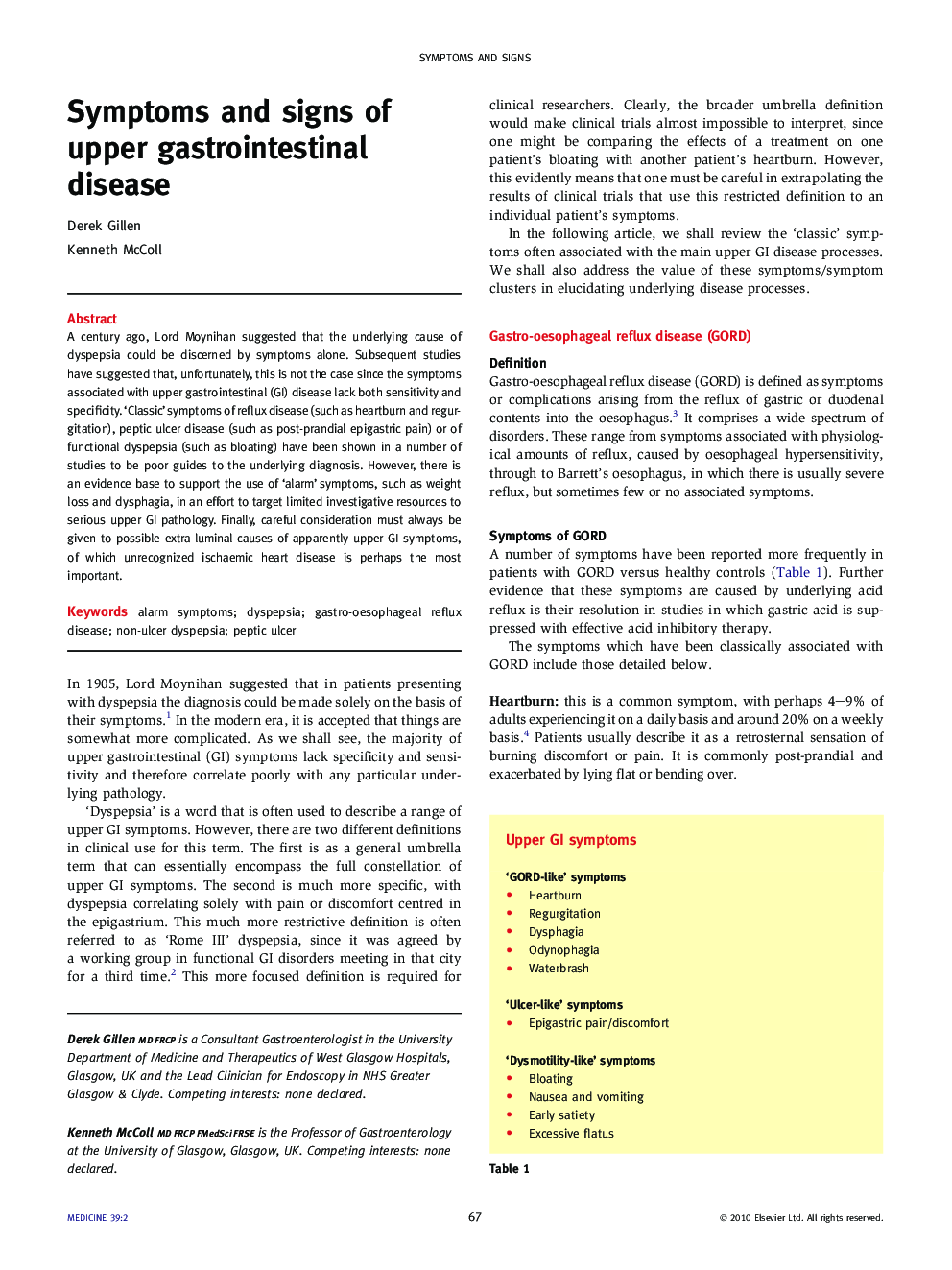| Article ID | Journal | Published Year | Pages | File Type |
|---|---|---|---|---|
| 3805024 | Medicine | 2011 | 5 Pages |
A century ago, Lord Moynihan suggested that the underlying cause of dyspepsia could be discerned by symptoms alone. Subsequent studies have suggested that, unfortunately, this is not the case since the symptoms associated with upper gastrointestinal (GI) disease lack both sensitivity and specificity. ‘Classic’ symptoms of reflux disease (such as heartburn and regurgitation), peptic ulcer disease (such as post-prandial epigastric pain) or of functional dyspepsia (such as bloating) have been shown in a number of studies to be poor guides to the underlying diagnosis. However, there is an evidence base to support the use of ‘alarm’ symptoms, such as weight loss and dysphagia, in an effort to target limited investigative resources to serious upper GI pathology. Finally, careful consideration must always be given to possible extra-luminal causes of apparently upper GI symptoms, of which unrecognized ischaemic heart disease is perhaps the most important.
